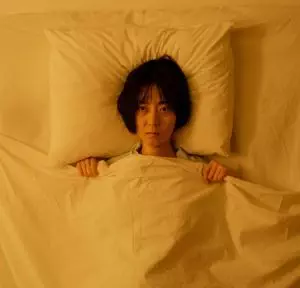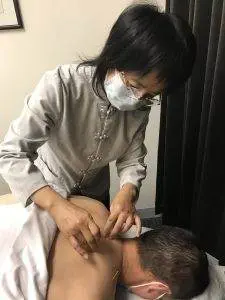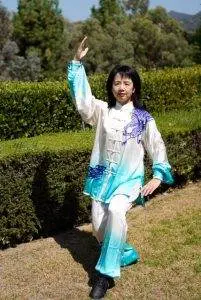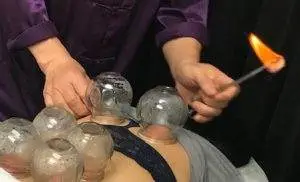-
 Art of Wellness Acupuncture & Traditional Chinese Medicine (TCM)11704 Wilshire Blvd, Suite 295, Los Angeles, CA, 90025
Art of Wellness Acupuncture & Traditional Chinese Medicine (TCM)11704 Wilshire Blvd, Suite 295, Los Angeles, CA, 90025
myartofwellness@gmail.com310-451-5522 Office Hours
MonClosedTue7:30 am --4 pmWed7:30 am --4 pmThu7:30 am -- 4 pmFri7:30 am -- 4 pmSat7:30 am -- 4 pmSunClosedOur office opens from Tuesdays to Saturdays 7:30 am to 4 pm, will be closed on Memorial day, Independent day, Labor day, Thanksgiving day, Christmas and New year.
-
Recent Posts
- How to Treat De Quervain’s Tenosynovitis With Acupuncture and TCM
- Chinese New Year 2026: Year of the Horse
- Acupuncture and TCM Treatment for Perimenopause Symptoms
- How to Treat Insulin Resistance With Acupuncture and TCM
- How to Treat Metabolic Syndrome With Acupuncture and TCM
- How to Treat Syncope With Acupuncture and TCM
- How to Treat Thoracic Outlet Syndrome With Acupuncture and TCM
- How to Treat Dupuytren’s Contracture With Acupuncture and TCM
- How to Treat Nutcracker Syndrome With Acupuncture and TCM
- How to Treat Rosacea With Acupuncture and TCM
- How to Treat Perioral Dermatitis With Acupuncture and TCM
- Lymphatic Drainage With Acupuncture and TCM
- How to Treat Turf Toe With Acupuncture
- How to Treat Nerve Pain With Acupuncture and TCM
- How to Treat Watery Eyes With Acupuncture and TCM
- How to Treat Ovarian Cysts With Acupuncture and TCM
- Sign up to receive news and updates and get my free report:“The Top 10 Reasons to Try Acupuncture”

December 2025 M T W T F S S 1 2 3 4 5 6 7 8 9 10 11 12 13 14 15 16 17 18 19 20 21 22 23 24 25 26 27 28 29 30 31
Headaches/Migraines
How to Treat Occipital Neuralgia With Acupuncture and TCM
By Qineng Tan, L.Ac., Ph.D. & Xiaomei Cai, L.Ac., Ph.D.

Throbbing headache and back of neck pain? Occipital Neuralgia, sometimes called “occipital migraine,” is a kind of chronic headache that causes stabbing neck pain and headache back of head. Acupuncture and TCM offer a way to help ease occipital nerve pain.
Occipital headache causes are usually due to compression of the occipital nerves, which start at the top of the spine where the neck is joined to the head and then run up into the scalp. A pinched nerve in the neck area, or tight muscles in the neck can lead to occipital pain, like a headache at base of skull.
Neck pain and back of head pain from an occipital migraine is often described as feeling like an electric shock or “zap,” or a sharp, shooting pain in the back of the head. The sensation may come on suddenly and last for only a few seconds, or it can go on throbbing for hours.
Occipital neuralgia pain is similar to that of Trigeminal Neuralgia, in which the intense nerve pain is on one side of the face, rather than the back part of the head. Occipital pain can also resemble that of chronic migraines and other kinds of headache disorders.
Occipital Neuralgia pain areas can include:
- Pain starts in the back of the neck and spreads upwards
- Back of head pain, behind the ears
- Pain on one side of the head
- Scalp pain, scalp tender to the touch
- Pain in the forehead
- Pain behind the eyes
- Eyes are sensitive to light
Occipital neuralgia pain can make the scalp feel so sensitive that even shampooing your hair or resting your head on a pillow feels unbearable. It can also feel like a burning sensation, or simply an aching neck.
Acupuncture can be used as an alternative or adjunct therapy for occipital neuralgia to bring headache and neck pain relief.
What Causes Occipital Neuralgia?

Occipital neuralgia occurs when the occipital nerves in the back of the head and neck are irritated or injured. There can be many different kinds of factors that trigger occipital neuralgia, such as:
- Pinched nerve in the neck
- Tension or tight muscles in the neck cause compression
- Compression of the nerves due to osteoarthritis in the spine, degenerative disc disease, or a herniated disk
- Trauma to the back of the head or the neck
- Tumor or other type of lesion in neck compresses the nerves
- Gout
- Diabetes
- Vasculitis (inflamed blood vessels)
Holding the head and neck in a position where it is tilted forward and down, such as when reading or looking at a screen for long periods of time can be associated with occipital neuralgia.
Often, though, the exact cause of the occipital pain in the head and neck is not discovered.
There is no clear test used to diagnose occipital neuralgia. The symptoms of occipital nerve pain are similar to other types of migraine headaches, and it is possible for a person to have both migraines and occipital neuralgia, so it can be challenging for doctors to determine exactly what is going on.
Conventional Treatment for Occipital Neuralgia
One of the ways that medical doctors will try to confirm a diagnosis of Occipital Neuralgia is by injecting a combination of anesthetic and steroids (occipital nerve block) into the affected area, to see if it deadens the pain. Botox injections can also be used to produce this effect. The hope is that the irritated nerve will heal over time.
If neck tension seems to be the issue, muscle relaxants may be prescribed. Massage therapy can sometimes be helpful in these cases.
Occipital neuralgia treatment at home might involve alternating ice packs and heating pads to help relieve pain at the back of the neck. Exercises like yoga may also be helpful for relieving neck tension that triggers the nerve pain.
If none of these treatments provides relief, then surgical options might include occipital nerve stimulation, in which electrodes are implanted to block nerve signals.
Acupuncture and TCM can be sought as an alternative way to deal with occipital neuralgia, and many other types of nerve pain.
Can Acupuncture Help Occipital Neuralgia?

From the TCM point of view, pain conditions that come and go, or cause periodic pain and stiffness, fall under a category called “Bi Syndromes.” “Bi” means “obstruction.” Bi Syndromes occur when an external pathogenic force like wind, cold, or dampness gets into an area of the body and causes blockages in the flow of Qi. Then, the muscles and joints may be tender, swollen, or sore, or numb and tingling, or have limited range of movement. Most types of arthritis, for example, are Bi Syndromes, according to TCM theory.
Occipital neuralgia is considered a Bi Syndrome, where tightness in the neck and base of the skull causes the stabbing nerve pain to flare up. The goals of acupuncture treatment for occipital headache and neck pain are to reduce tension, stress, and inflammation, to clear blockages in the Qi at the organ system level, and to provide natural analgesic relief from nerve pain signals.
One case study of a patient who had been suffering from occipital headaches for over a year found that her pain resolved after five acupuncture treatments.
A systematic review of evidence related to TCM treatment for occipital neuralgia in China showed that acupuncture was effective both as an alternative to medical treatment, and as an adjunct to medicine.
Acupuncture Near Me for Occipital Neuralgia in Los Angeles
At Art of Wellness Acupuncture near Santa Monica and Brentwood, we have over 30 years of experience helping people heal from all kinds of neurological conditions and nerve pain. Conditions related to nerve compression, such as Carpal Tunnel syndrome (wrist pain), Morton’s Neuroma (ball of foot pain), Sciatica (hip pain), Plantar Fasciitis (heel pain), and even dental pain (toothaches) can all be relieved with acupuncture and TCM treatment. If you or someone you know is suffering with recurring headaches, migraines, or neck pain, please consider giving acupuncture a try.
*This article is for education from the perspective of Traditional Chinese Medicine only. The education provided by this article is not approved by FDA to diagnose, prevent, treat and cure human diseases. It should not stop you from consulting with your physician for your medical conditions. Traditional Chinese Medicine is based on Qi, which is an invisible force that usually cannot be observed by modern science. Because science focuses on testing ideas about the natural world with evidence obtained through observation, these aspects of acupuncture can’t be studied by science. Therefore acupuncture and Chinese herbs are often not supported by double-blind, randomized trials, and they are considered alternative medicine therapies in the United States.
How to Treat Chronic Fatigue Syndrome With Acupuncture and TCM
By Xiaomei Cai, L.Ac., Ph.D. & Qineng Tan, L.Ac., Ph.D.

Chronic fatigue syndrome (CFS), also known as myalgic encephalitis (ME/CFS), is a condition marked by extreme fatigue that doesn’t get better, even with rest, and gets worse with physical and mental exertion. Chronic fatigue is not well understood by medical science, but acupuncture and Chinese medicine for chronic fatigue syndrome symptoms can be an effective treatment option.
People with chronic fatigue syndrome are always tired, even after getting a normal amount of sleep, and the condition persists for weeks, months, or years. Other chronic fatigue symptoms include body aches, cognitive problems, vision problems, and emotional or mental health problems, like depression and anxiety.
If a person feels tired all the time, with no medical explanation, for six months or more, and has several other chronic fatigue syndrome symptoms like dizziness, difficulty concentrating, headaches, or sensitivity to light, then they might be diagnosed with CFS, or myalgic encephalitis (ME CFS).
By definition, a syndrome is a collection of symptoms that often appear together in combination, for which the exact explanation is unknown. Chronic fatigue has been considered a syndrome for some time, but has more recently been given the designation of a “disease;” hence, the newer term “myalgic encephalitis,” which refers to muscle pain and inflammation of the brain and spinal cord.
Chronic fatigue syndrome symptoms can be very similar to those of fibromyalgia. People with fibromyalgia also experience severe fatigue, but the primary symptoms of fibromyalgia are musculoskeletal pain that comes and goes all over, especially in “tender points” around the major muscles and joints, along with swelling and inflammation. It is possible to have both ME/CFS and fibromyalgia.
Women are much more likely to have chronic fatigue than men. MECFS can begin to appear at any stage of life, but most usually develops in adulthood. It is estimated that up to 90% of people who have chronic fatigue go undiagnosed.
ME/CFS is a serious and disabling condition that can interfere with even the most basic daily activities. People with chronic fatigue may be able to participate in some events where they exert themselves mentally and/or physically, but afterwards, they will feel completely wiped out and have to take time to recover, often confined to bed. This is called post-exertional malaise (PEM).
Top 10 Chronic Fatigue Syndrome Symptoms

The most common ME/CFS symptoms include:
- Fatigue, tired all the time, weakness
- Sensitivity to light
- Trouble concentrating, hard to focus, memory problems, confusion
- Dizziness, especially when getting up from lying down
- Headaches
- Muscle aches, body ache, muscle weakness, joint pain
- Enlarged lymph nodes in neck or armpit area, sore throat
- Tired after exercise or mental exertion (post-exertional malaise)
- Depression, mood swings, moodiness
- Insomnia, sleep problems
Other signs of chronic fatigue syndrome may include: fever, abdominal pain, weight loss or weight gain, allergies, rash, rapid heart beat, and night sweats/hot flashes.
What Causes Chronic Fatigue?
The cause of ME/CFS is not known. Immune system dysfunction, the aftereffects of having a virus, and psychological factors have all been associated with the development of chronic fatigue.
Some people begin to have symptoms of chronic fatigue after having a viral infection, such as Epstein Barr, mononucleosis, or herpes. Postural orthostatic tachycardia syndrome (POTS) is also strongly associated with chronic fatigue.
While it does seem that some people who suffer from CFS also have immune system problems, chronic fatigue is not considered to be an autoimmune disorder in and of itself. As with other conditions like lupus or fibromyalgia, CFS sometimes appears after a person has gone through some sort of emotional trauma or physical injury.
Some people with chronic fatigue have hormone imbalances related to pituitary hormone, adrenal hormone, or hypothalamus hormones, but it is not understood how these might be related to their condition. Diabetes, anemia, or hypothyroidism can also create hormonal imbalances that can contribute to chronic fatigue.
In some cases, chronic fatigue could be due to a sleep disorder, such as sleep apnea or chronic insomnia. Long-standing mental health issues like depression, anxiety, or PTSD can interfere with sleep and hormone responses, contributing to the chronic fatigue syndrome symptoms.
Treatment for Chronic Fatigue Syndrome Symptoms

There is no clear treatment protocol within conventional Western medicine for ME/CFS. A doctor may diagnose myalgic encephalitis if they have ruled out other possibilities and then try to recommend medications or various types of therapy to help people deal with the symptoms of chronic fatigue.
Pain relievers or NSAIDs will often be the standard recommendation for handling ME/CFS related pain like headaches or muscles aches.
Doctors may prescribe antidepressants as a way of helping patients cope with depression and anxiety related to chronic fatigue. However, these medications can sometimes cause side effects that will exacerbate the chronic fatigue rather than helping it.
Some doctors have tried treating CFS with antiviral medications, corticosteroids, or thyroid hormone medications. None of the pharmacological interventions that have been used to treat chronic fatigue syndrome have proved to be very effective.
Thus, many patients with ME/CFS consider turning to alternative medicine or complementary therapies to relieve CFS symptoms. Acupuncture is now widely recognized as an alternative therapy for chronic fatigue.
Can Acupuncture and Chinese Medicine Help Chronic Fatigue Syndrome?
Traditional Chinese medicine is well suited to treatment for ME/CFS. Overall, TCM philosophy pays close attention to the subtle balance of energy, known as Qi, within the body as a whole, as well as within the various organ systems. By observing the specific symptoms each person experiences as part of chronic fatigue syndrome, we can pinpoint which organ systems are deficient and need strengthening.
Classic TCM patterns related to chronic fatigue diagnosis include:
- Spleen Qi deficiency
- Liver Qi stagnation
- Kidney deficiency
- Yin deficiency
- Heat toxicity
- Phlegm obstruction/dampness
Latent heat and dampness are sometimes the long-term effects of a viral infection or other illness, or a long period of emotional stress. These conditions originate from an external pathogenic factor, but then cause a series of imbalances which weaken the kidneys and other organs over time. Acupuncture treatment and herbs can help reduce inflammation and strengthen Qi.
A TCM doctor will choose acupuncture points and a combination of herbs that will help harmonize the affected systems. With herbs, we are able to get nutrients into the body beyond what you can do with foods alone. A balanced diet that cools heat and tonifies the organs will also be important for recovering strength and energy.
One controlled trial found that four weeks of acupuncture treatment led to improvements in CFS symptoms.
A systematic review of studies regarding acupuncture treatment for ME CFS showed a reduction in the severity of fatigue.
A study using acupuncture and moxibustion treatment for CFS showed a 90% effective rate, with half of the patients feeling that their CFS was “cured.”
Another study involving acupuncture and moxibustion found that the moxa treatment in particular became more and more effective as treatment sessions continued past the 10th treatment. Moxibustion was shown to have an effect on the vagus nerve, which controls the parasympathetic nervous system.
How long it takes to get results from acupuncture treatment for chronic fatigue will vary from person to person, depending on how long the person has been experiencing CFS, and how deeply the organ systems are affected. TCM treatment has a cumulative effect which strengthens over time and several sessions.
Acupuncture Near Me for Chronic Fatigue Syndrome (ME/CFS) in the Los Angeles Area
ME CFS is far more common than statistics show, because many people suffer in silence and invisibility. Now, many people are struggling with chronic fatigue after having COVID-19. TCM modalities like acupuncture, Chinese herbs, and moxibustion, can help relieve fatigue, depression, mental fogginess, poor sleep, and other symptoms of CFS. If you or someone you love has been feeling exhausted for months without improvement, it may be time to consider trying acupuncture for chronic fatigue.
*This article is for education from the perspective of Traditional Chinese Medicine only. The education provided by this article is not approved by FDA to diagnose, prevent, treat and cure human diseases. It should not stop you from consulting with your physician for your medical conditions. Traditional Chinese Medicine is based on Qi, which is an invisible force that usually cannot be observed by modern science. Because science focuses on testing ideas about the natural world with evidence obtained through observation, these aspects of acupuncture can’t be studied by science. Therefore acupuncture and Chinese herbs are often not supported by double-blind, randomized trials, and they are considered alternative medicine therapies in the United States.
How to Treat Meningitis With Acupuncture and TCM
By Qineng Tan, L.Ac., Ph.D. & Xiaomei Cai, L.Ac., Ph.D.

Fever, vomiting, stiff neck, skin rash, aversion to light, bad headache? These are possible early signs of meningitis. Bacterial meningitis can become very serious very quickly—and even be deadly—,so it is important to be aware of meningitis symptoms. Acupuncture and TCM can provide adjunct treatment for meningitis in addition to conventional medicine.
Meningitis is a general term for any kind of swelling or inflammation in the tissue that surrounds the brain and spinal cord. These membranes are called the meninges. Sometimes called “spinal meningitis,” this type of inflammation is most often caused by either a bacterial infection or viral infection, but other things can cause meningitis, too.
The bacteria and viruses that can cause meningitis can be spread from person to person in the same ways as most colds, flus, and other infections. If you suspect you may have bacterial meningitis, it is important to seek treatment right away. Similar to encephalitis (inflammation of the brain), this illness can progress quickly, sometimes causing seizures and even death.
Even after meningitis moves past an acute phase, many people will suffer from after effects and complications of meningitis, like headaches, vision or hearing problems, or cognitive issues. TCM and acupuncture can help people recover more fully from the effects of brain swelling due to meningitis.
Top 5 Types of Meningitis:
Swelling in brain can be caused by meningitis bacteria, or can manifest due to a virus or some other condition. Causes of meningitis can include:
- Bacterial meningitis – meningitis can be triggered by various bacteria, such as the kinds that cause strep throat, pneumonia, tuberculosis, and colds and flu. This type of meningitis can become serious, even causing death if left untreated. Symptoms usually appear quite suddenly, and can worsen in a matter of hours.
- Viral meningitis – Viruses that can cause meningitis include non-polio enteroviruses, herpes virus, West Nile, Epstein-Barr, measles, mumps, and chickenpox/shingles viruses. Typically meningitis caused by these types of viral infection is milder than bacterial meningitis. Certain types of meningitis are also associated with HIV/AIDS.
- Certain types of cancer – if a cancer tumor, such as a brain tumor, or a breast cancer tumor, begin to break apart and move through the body, they can get into the meninges and cause carcinomatous meningitis.
- Lupus – sometimes meningitis can be part of an autoimmune response that affects the central nervous system, such as occurs with Lupus.
- Injury to the head or spine, brain surgery – swelling around the brain can be caused by some kind of external physical trauma
Meningitis can also be caused by a fungus or parasite that gets into the body.
The effects of meningitis, especially bacterial meningitis, can be very serious, so if you see a combination of symptoms from those listed below, you should seek urgent medical attention.
Top 10 Meningitis Symptoms:

Brain swelling symptoms or symptoms for meningitis can include:
- Fever
- Nausea and/or vomiting
- Stiff neck, neck stiffness
- Severe headache
- Meningitis rash on any part of the body: small red spots, red blotches, blood blisters
- Aversion to bright light
- Fatigue, sleepy, hard to stay awake
- Confusion, delirious, foggy head, difficulty concentrating
- Seizures
- No appetite or thirst
In infants and young children, signs of meningitis might include: crying, not wanting to eat, hard to wake up, high fever, stiffness in the body, swelling or bulging on the top of the head (fontanel).
There are a few types of meningitis vaccine, or meningococcal vaccine, which can help to prevent bacterial meningitis.
Diagnosis and Treatment for Meningitis
When a patient presents with these types of symptoms, a doctor will probably want to err on the side of caution and test for bacterial meningitis, since time is of the essence when treating what could be a very serious condition.

Blood tests, CT scan, or MRI may all be used to check for signs, but a spinal tap to collect cerebrospinal fluid is considered the definitive way to confirm a diagnosis of bacterial meningitis.
Bacterial meningitis is treated with antibiotics and corticosteroid medications to get rid of the bacterial infection and reduce swelling.
Viral meningitis will not respond to antibiotics. Some doctors may prescribe steroid medications to reduce swelling.
It can take longer to figure out what is causing swelling in the brain if it is caused by some other factor, such as a fungal infection, or in relation to an autoimmune disorder. In some cases, a doctor may choose to start treating with antibiotics and/or antivirals until the root cause is determined.
Even after meningitis treatment, some people will continue to have after effects, some of which can even lead to disability. Cognitive problems with memory and concentration, vision problems, headaches, tinnitus (ringing in the ears), dizziness, problems with balance and coordination, and even seizures, can be some of the long-term effects of meningitis. Acupuncture and TCM can be very helpful for treating these lingering symptoms of meningitis.
Can Acupuncture Help Meningitis?
In Traditional Chinese medicine, we classify many infectious diseases—including cold and flu, strep throat, chicken pox, SARS, tuberculosis, and meningitis—as “warm” diseases. When these types of external pathogens get into the body, they cause fever, which depletes the Yin (cool, liquid) energy of the body. The TCM approach, then, is primarily to clear the heat.

TCM has its own way of looking at symptoms occurring in a pattern, from which we deduce what kind of pathogenic forces are creating disharmony. The TCM view of meningitis is that it relates to an invasion of Heat that leads to a deficiency of Yin energy. A pattern of symptoms that includes: fever, red skin rash, irritability, confusion, and trouble sleeping would indicate that pathogenic heat is depleting the body of fluids and affecting the pericardium, which in TCM means “protector of the heart.”
When these symptoms are present, we know that there is inflammation causing swelling of tissues and preventing the smooth flow of nutrition and Qi to the vital organs. Chinese herbs and acupuncture can help reduce inflammation that causes symptoms of meningitis.
Chinese herbal formulations that go back centuries can also have antibacterial and antiviral effects.
Acupuncture treatment can not only help, then, the root cause of meningitis, but can also deal with the symptoms many people experience as a result of swelling in the brain, such as headaches, dizziness, and spasms.
Acupuncture Near Me for Meningitis – Los Angeles Area
Meningitis is a condition that needs urgent care because it can be a very serious illness in the short-term. Meningitis can also lead to long-term effects that are debilitating. Acupuncture and TCM can provide relief and recovery from meningitis symptoms.
*This article is for education from the perspective of Traditional Chinese Medicine only. The education provided by this article is not approved by FDA to diagnose, prevent, treat and cure human diseases. It should not stop you from consulting with your physician for your medical conditions. Traditional Chinese Medicine is based on Qi, which is an invisible force that usually cannot be observed by modern science. Because science focuses on testing ideas about the natural world with evidence obtained through observation, these aspects of acupuncture can’t be studied by science. Therefore acupuncture and Chinese herbs are often not supported by double-blind, randomized trials, and they are considered alternative medicine therapies in the United States.
How to Detox With Acupuncture and TCM
By Xiaomei Cai, L.Ac., Ph.D. & Qineng Tan, L.Ac., Ph.D.

Why is it important to do a detox or body cleanse periodically? When done with the right support from an acupuncturist near me, detoxing can help improve your digestion, immune function, fertility, and many other aspects of your health. Store bought colon cleanse products or a juice cleanse won’t really do the job, though. A detox program with acupuncture and Chinese herbs will do more to optimize your health than just a detox diet will.
When we recommend our Detox Program at Art of Wellness, we are not talking about fasting or detox drinks, like a master cleanse. The goal of our program is to detoxify the organ systems of the body: it’s a liver detox, kidney cleanse, lungs, heart, and spleen. This is a full body cleanse designed to give you a health reset. According to TCM philosophy, your body knows how to repair and renew itself, but it cannot do this job when it is congested and out of balance.
In TCM, we have a broad concept of what “toxins” are and how they can affect our bodies and our health. Toxic chemicals that come from our environment, such as food additives, pesticides, cleaning products, and beauty and hygiene products are certainly part of the problem. Drugs, medicines, alcohol, and unhealthy foods can also be toxic. So can behavioral habits, like sitting and looking at our screens and devices too long.
But our own bodies produce toxins, too. The waste products our organs create are “toxic,” and if they are held in the body too long without being adequately cleared out, they can negatively impact organ function. Imbalances in the system can cause conditions of excess heat or phlegm, which can lead to all kinds of problems with both your physical and mental health.
Stress, lack of sleep, and extreme emotions can also contribute to toxic conditions in the body and mind. When the organ systems are out of balance, the body is under constant pressure to keep functioning, but we do not feel our best.
Signs you need to detox include:
- Fatigue, low energy, tired all the time
- Foggy head, memory problems, trouble concentrating
- Constipation
- Trouble sleeping, insomnia
- Weight gain
- Hair loss
- Hormone imbalances
- Signs of rapid aging
- Skin rash, acne
- Fingernails are brittle, lined or ridged
- Severe PMS symptoms or menopause symptoms
- Headaches, migraine
- Water retention, edema, swelling in extremities
Inflammation is largely created by toxic conditions in the body, and most pain conditions and chronic illnesses stem, at least in part, from inflammation somewhere.
Why You Need a Liver Detox

In conventional medicine, we think of the liver as being a sort of filter that removes toxins from the blood and helps metabolize fat. In TCM theory, we consider the liver to be the storehouse and distributor of blood; therefore, it also plays a crucial role in the menstrual cycle. The liver is also strongly connected to a person’s emotional life.
Stress, lack of sleep, too much sugar, alcohol, fatty, fried foods, pharmaceutical medicines, and recreational drugs all tax the liver above and beyond what it needs to do just to keep the blood flowing to nourish the body. When too many demands are placed on the liver, it can cause all kinds of symptoms, including: fatigue, insomnia, and headaches. Feelings of anger, frustration, anxiety, and irritability may arise. Conversely, when a person is feeling bitter and resentful, and isn’t able to express it, those unresolved emotions may begin to cause trouble with liver function.
Just as the liver governs the blood, in TCM, the kidneys govern the water of the body, controlling elimination through the bladder, and maintaining blood pressure by keeping the right amount of water in the bloodstream. Signs that the kidneys are not balanced include: problems with blood pressure, edema, puffiness in the face or extremities, UTIs, chronic fatigue, and menopause symptoms, like dryness and hot flashes.
Detoxing the organ systems, including the liver and kidneys especially, can help rejuvenate the digestion and allow better nutrition to reach all parts of the body, as the quality and flow of blood and other bodily fluids will be improved.
Making sure that your excretory system is in good working order before starting a cleanse is important. If you are already having problems with constipation, for example, we will want to make sure we get things moving before we start cleansing the organs. Our detox also focuses on the body’s largest excretory organ: the skin.
Top 10 Reasons To Detox

It is a good idea for everyone to detox periodically; detoxing every six months is reasonable for most people. Sometimes we will specifically recommend a detox for a patient when they are struggling with a particular health problem, or if they are planning a pregnancy.
Detoxing can help:
- Boost Immunity – a cleanse will help get your lymphatic system, which produces and transports immune cells and removes waste from cells, moving, improving the efficacy of your immune system.
- Break Free From Addiction – if you are ready, a commitment to the detox program and food plan can help you end patterns of substance abuse, drug use, alcohol addiction, smoking, and other types of dependency.
- Infertility – We often advise people who come to Art of Wellness for fertility treatment to begin with the Detox Program. Not only will this help increase the chances of conception occurring, whether naturally or with the aid of ART, but it will also lay the foundation for your child’s health in the future.
- Improve sleep – This works both ways. In order for the body to do its routine daily work of removing toxic waste, it needs plenty of sleep. The Liver, in particular, is working hard through the night to clean and deliver fresh blood to the cells. Sleeping on your side enhances your body’s ability to do this work, allowing the internal organs to drain properly. When your body is functioning well, your sleep will be of better quality, more restful and refreshing.
- Improve skin and hair – Dull eyes and skin, dark circles or bags, puffiness, and thinning hair are signs of stagnant blood and Qi. Nutrients from the right foods and Chinese herbs help to nourish the skin, and clear heat, dampness, and dryness. When old cells are removed, hair and eyes can shine again. Acupuncture treatment can help stimulate collagen production, which also happens while you sleep.
- Weight loss – While our acupuncture detox is not about how to lose belly fat fast, many people will find that it gives them a good foundation for new eating habits. Detoxing the liver and kidneys will help your body metabolize fat better.
- Balance hormones – severe PMS symptoms, bloated stomach and mood swings, perimenopause symptoms, infertility in women and infertility in men (oligospermia) can all be improved when hormone function improves. Acupuncture treatment can also help relieve conditions like PCOS, fibroids/leiomyoma, and endometriosis for women, and BPH in men.
- Reduce inflammation – many illnesses and pain conditions are inflammatory in nature. If you are suffering from pain due to plantar fasciitis, gout, rheumatoid arthritis, tennis elbow, carpal tunnel syndrome, shoulder or hip pain, acupuncture can help.
- Increased energy – better nutrition, better circulation, better sleep, and better organ function will all work synergistically to help you feel more energetic.
- Chronic illness – many chronic illnesses are rooted in toxic conditions within the body or exposure to toxins. Hard-to-treat conditions like autoimmune conditions and other systemic problems may be helped with alternative medicine when conventional medical treatments have not been successful. We treat many conditions with acupuncture and herbs, such as: lupus, lyme disease, celiac disease, fibromyalgia, and Crohn’s disease. We also provide support for people going through cancer treatment.
7 Steps of Detox Program With TCM Acupuncture and Herbs

Pain and dysfunction occur when there is imbalance and when there are areas of stagnation within the body. Think of the metaphor of a house that needs to be deep-cleaned; there are dark corners of the body that have been ignored for a while, where dust and cobwebs have gathered. The Detox program reaches into these pockets of stagnation, sweeps them clean, and makes sure they get some fresh air and sunlight shining on them, in the form of invigorated Qi and blood.
- Acupuncture Treatments – the primary goal of acupuncture treatments during the detox phase is to get Qi moving freely, remove blockages, and to assist in elimination of toxins from the body.
- Cupping Treatment – the TCM modality of cupping creates a vacuum-like suction that moves Qi and blood from the innermost parts of the body outwards. During the detox program, cupping helps to pull toxins out of the lungs and other organs.
- Detox Herbs – the Chinese herb detox tea helps to clear heat and toxins from the body and improve digestion and elimination.
- Foot Pad Detox – detox foot patches, worn as you sleep at night and removed in the morning, help to pull toxins and fatty deposits from the body.
- Detox Bath – Sweating is an excellent way to remove toxins through the skin; this is why so many traditions rely on saunas and hot baths. Our herbal sachets allow you to enjoy a therapeutic herbal soak in your own bathtub.
- Exercise – Your acupuncturist will instruct you on how to practice daily exercises, based on QiGong movements, that will help to get Qi and blood moving.
- Nutrition – the food plan during the detox is based on whole grains, lean proteins, and plenty of vegetables, flooding your system with nutrients.
Detox Near Me Los Angeles, Westside
The beginning of the year, springtime, after recovery from a long illness, while preparing for a healthy pregnancy–anytime may be the right time for you to detoxify your system and get a fresh start. We recommend that you take the time to dedicate yourself to a week of cleansing with the Art of Wellness Detox Program at least twice a year for optimal health benefits.
*This article is for education from the perspective of Traditional Chinese Medicine only. The education provided by this article is not approved by FDA to diagnose, prevent, treat and cure human diseases. It should not stop you from consulting with your physician for your medical conditions. Traditional Chinese Medicine is based on Qi, which is an invisible force that usually cannot be observed by modern science. Because science focuses on testing ideas about the natural world with evidence obtained through observation, these aspects of acupuncture can’t be studied by science. Therefore acupuncture and Chinese herbs are often not supported by double-blind, randomized trials, and they are considered alternative medicine therapies in the United States.


